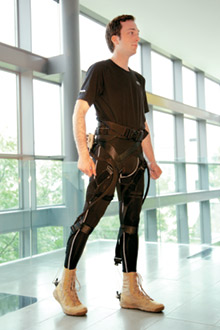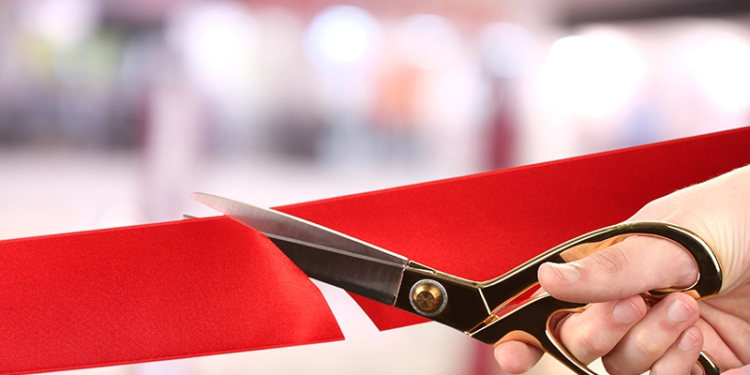
The suit conforms to the body, allowing for natural joint movement while augmenting effectiveness. Photograph courtesy of Harvard’s Wyss Institute.
The Wyss Institute for Biologically Inspired Engineering at Harvard University (Harvard) has entered into a collaboration with ReWalk Robotics, Yokneam Ilit, Israel, and Marlborough, Massachusetts, to accelerate the development of the institute’s lightweight, wearable, soft exosuit technologies for assisting people with lower-limb disabilities, such as patients with multiple sclerosis or those who have suffered strokes.
“ReWalk brings commercialization expertise and experience in the area of wearable robotics and complements our translation-focused research,” said Conor Walsh, PhD, who is a core faculty member at the Wyss Institute, the John L. Loeb associate professor of engineering and applied sciences at Harvard’s John A. Paulson School of Engineering and Applied Sciences, and founder of the Harvard Biodesign Lab. “Ultimately this agreement paves the way for this technology to make its way to patients.”
The soft, wearable robot was developed at the Wyss Institute by Walsh and his team through prototyping that included the involvement of roboticists, mechanical and biomechanical engineers, apparel designers, and software engineers. Over the course of its development, the exosuit has been the catalyst for new forms of functional textiles, flexible power systems, and control strategies that integrate the suit and its wearer in ways that mimic the natural biomechanics of the human musculoskeletal system. Walsh’s collaborators also include two faculty members at Boston University’s Department of Physical Therapy & Athletic Training: Terry Ellis, PhD, PT, NCS, an assistant professor and director of the Center for Neurorehabilitation, and Kenneth G. Holt, PhD, PT, an associate professor.
Using form-fitting, fabric-based designs that are lightweight and nonrestrictive, the exosuit uses compact, powerful actuators packaged in a belt to provide assistance to the wearer’s legs in a physiologically relevant manner. These enhanced movements have the potential to assist wearers in walking with greater stability and metabolic efficiency, which could prevent injury and reduce fatigue.
This collaboration with ReWalk includes a license for intellectual property and funding for the continued development at the institute. Additional funding came from the Defense Advanced Research Projects Agency’s Warrior Web program, which seeks to develop technologies to mitigate musculoskeletal injuries among military service members while improving performance.
Editor’s note: This story was adapted from materials provided by Harvard’s Wyss Institute.




